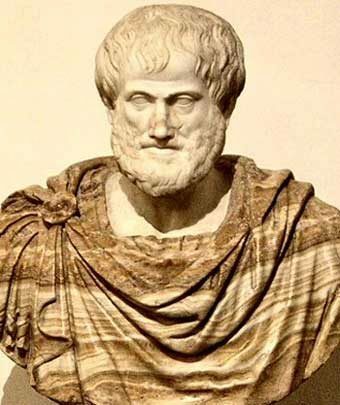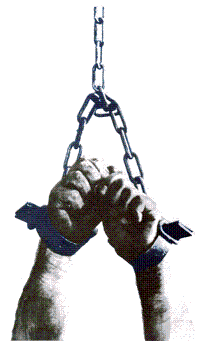Characteristics Of The Modern Age
Universal History / / July 04, 2021
The modern age is the historical period that followed the Middle Ages in the West, it begins according to some authors after the taking of Constantinople by the Turks in 1453 and according to others from the discovery of America in 1492.
It covers from the middle of the 15th century to the end of the 18th century, it is usually divided into the early modern age and the second modern age; periods that encompass other historical-cultural periods, which had particular characteristics that differentiated them in areas such as thought, art and production systems.
- The Renaissance
- Baroque
- The Rococo
- Illustration
- The industrial Revolution
- Capitalism
With this period there are important changes in human thought, science, techniques, art, literature and in the social order.
Characteristics of the early modern age:
After the taking of Constantinople by the Turks and the subsequent migration of Greek scholars to the West (mainly to Italy), as well as a consequence of the Spanish reconquest and the appropriation of the Arab knowledge that had remained in the peninsula, which is translated, both events give a boost to the knowledge.
Thought.- Humanism and rationalism are imposed, ceasing to have primacy the knowledge focused on the religious sphere, putting the human being as a thinking entity; New philosophical currents emerge, which although they are inspired by the classical Greek and Roman currents, had a momentum more in keeping with their time; "Man is the measure of all things," is one of the maxims that exemplifies this line of thought), tending to a certain progressivism, to the creation of a scientific method which extends to various areas. Several authors study and write on scientific, social, philosophical, political, moral issues and also works for entertainment in various countries, creating works literary works of various genres, taking on renown authors such as Thomas Hobbes, Tomás Moro, Nicolás Machiavelli, Francis Bacon, Copernicus, Kepler, William Shakespeare, Miguel de Cervantes and others.
Religious changes. The intellectual changes that occur in this period, favor reformist movements in the church, which results first in the Protestant Reformation and then in the Counter-Reformation. which in turn provoke religious conflicts that will dominate Europe for several years and will give it its current religious geography, in which Protestantism predominates in the north (England, Holland, Norway, Sweden, part of Germany, part of France, Switzerland) and Catholicism in the south (Italy, Spain, Portugal, Austria, Belgium, part of Germany, and most of France. This causes an increase in the investigations of the Inquisition against Jews, Muslims and Protestants, increasing their power, especially in the domains of the Habsburg family.
Rise of the cities.- Medieval feudalism is rapidly declining and cities begin to rise; This gives new impetus to crafts and corporations, increasing commerce and industry. When there was a great boom in trade, city-states began to emerge, independent of the great kingdoms, such as the city-states, Italian and German, that are dedicated to the commerce and to the manufacture of some products specific.
Growing Nationalism. Nation states are born; Despite the fact that several countries are governed by the same sovereign, as in the case of Carlos V and Felipe II, the difference between some collective entities that live in a certain territory, that have traditions, language and similar customs, which creates a feeling of belonging to a national unit, which causes the creation of national states, such as France, England, Holland, Portugal, etc. That unlike the Middle Ages, they no longer allow their division as the property of the monarchs, but continue as a common entity.
Discoveries.- The so-called voyages of discovery begin, alternate routes are explored to reach Asia, then of the taking by the Turks of the roads that were used for trade with the countries Asians; In this search, Africa is bordered, reaching as far as India, China and Japan. Later the existence of the American continent is discovered with the arrival of Christopher Columbus in 1492 and as a consequence of this, the colonization of said continent by the Europeans.
Colonialism.- As a consequence of the discovery of America and the new routes to reach Asia bordering Africa, European nations began to create commercial establishments and colonies in African and Asian territories but especially in America where a large number of European population migrated and where millions of African slaves were transferred to perform various jobs.
Some differences stand out in the type of colonization of countries such as Spain, France or Portugal; In the colonies of these countries, although privileges remained in the hands of Europeans, there was a mixture of indigenous and European, as well as Africans with both races.
On the other hand, the Anglo-Saxon colonization was characterized by the systematic displacement and extermination of the occupying peoples of the newly discovered territories; This happened especially in the American continent, as well as the subjugation of autochthonous populations in Asia and Africa, and avoiding the mixing of races, putting the whites in better conditions than the natives, making a separation of the places where the whites lived and the others races. In addition to a marked exploitation and trade of slaves from Africa, for the agricultural exploitation of plantations and mining in the American continent.
Mercantilist economy.- The economy ceases to be based solely on agriculture and livestock, and commerce begins to boom; Precious metals (gold and silver) are collected, especially from the Spanish colonies of America. It seeks to maintain the trade balance in a favorable way to the country, favoring exports and placing tariff rates on imports, agriculture is promoted in the cheap food production, producers are forced to deliver part of their production to the state at a low price, in order to reduce food imports and sustain the sector industrial. Merchant fleets are created, which are supported by the military navies of each country. Colonies are founded to obtain raw materials at low prices and their exploitation, as well as to increase the product market manufactured goods from the metropolis, and the colonies were prevented from competing commercially with the metropolis, prohibiting the production of certain products.
Piracy.- The commercial boom and the increase in the transit of goods through the sea, fostered the emergence of the piracy, especially English, French and Dutch pirates in the Atlantic and Turkish pirates in the Mediterranean. The pirates raided the ships that went from America to Europe loaded with gold, silver and raw materials from the Spanish colonies, especially from the shipments of gold and silver from New Spain and gold from Peru, even attacking and besieging Campeche and dominating vast areas on the continent such as Caribbean islands and Belize. Piracy was supported with economic, human and military resources by England especially, against Spain to weaken it economically.
Slavery.- There is a boom in the trafficking and exploitation of slaves from Africa, in the Spanish, Portuguese, English and French colonies, creating depopulation of entire areas of Africa and creating large black populations in America, where they lived in subhuman conditions, being brought to replace indigenous people in the heavier tasks, such as planting intensive crops on plantations, such as mining and construction of works.
Second stage of the Modern age:
Illustration.- It was an intellectual movement that spanned the philosophical, literary and cultural fields, within the environment European and American territory, in a temporal space that spanned from the end of the seventeenth century and the entire XVIII. It was a movement that was characterized by rationalism, with the belief that education in the Rationalist knowledge, separated from the supernatural, leads to happiness and solves the problems of being human. This movement had a greater boom in France and England, with its highest expression being the so-called French encyclopedists, as well as characters such as Juan Jacobo Rousseau.
Industrial Revolution.- Thanks to the agricultural, technical and economic changes that occurred in Europe, the development of the mining, iron and steel industries, and textiles, emerged, with a machining in them, a phenomenon that developed more rapidly in England and which is known as the "first industrial revolution" or simply as "revolution industrial".
Capitalism.- As a consequence of the discovery of America, countries such as Spain and Portugal, which receive large quantities of precious metals, which in turn are traded in the rest of the world. Europe, giving a boom to the economy through the introduction of precious metals and new products that are exploited, establishing as an economic system the mercantilism. After the creation and exploitation of colonies, the development of the industries and the machining of the same, large capitals, and capital is taken as a production tool, just as the search for the increase of capital through monopolies begins.


